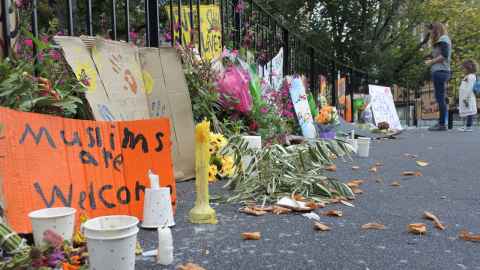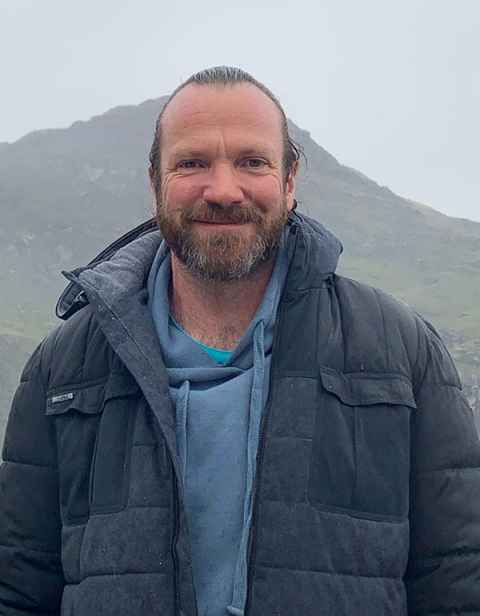Christchurch terrorist’s propaganda exposed: study
26 August 2025
The terrorist who murdered 51 people in two Christchurch mosques sent out a raft of propaganda at the time of the attacks which deliberately masked his real views and plans, according to a new University of Auckland study.

The Christchurch terrorist’s * so-called manifesto wasn’t an honest account of his motives, but a calculated piece of propaganda designed to mislead the public, manipulate emotions and inspire further violence.
These are the findings of a study by Dr Chris Wilson and Michal Dziwulski from the University of Auckland, published recently in the Journal of Threat Assessment and Management.
The study compares the claims the terrorist made in his 74-page manifesto, as well as to the Royal Commission of Inquiry, with hundreds of his more candid posts on extremist online forums like 4chan.
It finds that his public statements, released at the time of his 2019 terrorist attacks on two Christchurch mosques, were deliberately deceptive.
“He sought to present himself as an ordinary individual driven to violence as a last resort, and having abandoned a peaceful solution because of the existential threat posed by immigration,” says Wilson, a senior lecturer in politics and international relations in the University’s Faculty of Arts and Education.
“He claimed he was reluctantly acting on behalf of the White race, seeking revenge for the death of vulnerable members of the group, and even that his mass killing was inspired by a desire to save the environment.”

The study debunks all these claims, and Wilson says these sorts of manifestos should never be treated as straightforward confessions.
“Terrorists’ statements are not honest explanations of their motives,” he says. “They are propaganda, designed to manipulate emotions, gain legitimacy, and inspire others to act.”
In this case, the authors found the manifesto was deliberately deceptive, and by exposing his lies, they hope to help undermine the myth he’s created in some like-minded circles as a type of ‘reluctant warrior,' thereby reducing the risk of copycat attacks.
The terrorist murdered 51 people and injured dozens more while they were at Friday prayers in two Christchurch mosques on 15 March 2019, a day now widely considered to be one of the country’s darkest.
And at almost the same time, he released a manifesto, live-streamed his killings, and sent multiple emails to politicians and media outlets, including to the office of the then prime minister Jacinda Ardern.
This was part of a broader 'campaign of propaganda' designed to maximise his impact and create a mythology around his actions, according to the study.
Terrorists’ statements are not honest explanations of their motives. They are propaganda, designed to manipulate emotions, gain legitimacy, and inspire others to act.
It identifies five central claims in the propaganda that don’t match the reality of his private online statements, says Wilson.
“He says he wasn’t a frequent user of extremist websites, but in reality, he posted regularly on far-right forum 4chan over a five-year period, openly endorsing racist violence.”
He also said he first sought peaceful, political solutions to immigration before carrying out the massacres, says Wilson, whereas in fact, he’d celebrated terrorist violence years earlier and fantasised about mass killings well before 2017.
“Another of his claims is he wasn’t racist, rather, simply protective of cultural ‘diversity’, but in fact, online posts reveal him to be virulently racist, antisemitic and with a dehumanising attitude towards multiple groups.”
And they found no evidence at all of his claim to be motivated by environmental concerns, Wilson says.
“He referred to himself as an ‘eco-fascist,’ but we found no genuine environmental interest in his private writings; this claim was purely propaganda to broaden his appeal.”
And finally, he outwardly claimed not to seek fame, and yet he carefully staged his attack to gain maximum notoriety, particularly within his online extremist community, preparing his manifesto, video and social media accounts to ensure he would be remembered.
The study shows that the terrorist’s careful image-building has been brutally successful, inspiring several copycat killers overseas who have cited him as a role model.
But by challenging and dismantling the mythology surrounding him, Wilson and Dziwulski say they hope to reduce his ongoing influence.
“While terrorist manifestos can provide some insight into a perpetrator’s worldview, they should be approached with great caution; uncritically repeating their claims risks amplifying their propaganda.”
They believe investigators, journalists and academics need to remember these documents are crafted as part of a communication strategy, just as important to the terrorist as the attack itself.
“We hope by debunking these lies, we will take away the aura that these individuals try to create around themselves.”
Countering the Propaganda of Terrorists: The Deception of Brenton Tarrant by Chris Wilson and Michal Dziwulski was published online on 9 June 2025 in the Journal of Threat Assessment and Management.
*Beyond the name of the study itself, the authors have agreed not to name the terrorist in any media about it out of respect for the families affected by 15 March 2019.
Media contact
Julianne Evans | Media adviser
M: 027 562 5868
E: julianne.evans@auckland.ac.nz